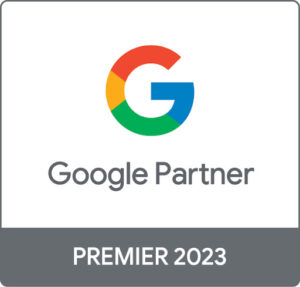Google rolled out a new algorithm update on the 25th of August 2022 called “helpful content”, which will devalue content written primarily for SEO.
Google has always stated in their webmaster guidelines that it is best practice to make pages primarily for users, not for search engines. So, the helpful content update shouldn’t come as a massive shock to the SEO community.
What Is Google’s New Helpful Content Update?
Google Search Central released a blog on Thursday 18th August which states that the “helpful content update is part of broader effort to ensure people see more original, helpful content written by people, for people in search results”. Google’s Public Search liaison, Danny Sullivan also expressed his excitement about the new helpful content update with a tweet saying that the update “is part of a broad continuing effort to bring more authentic info into Google Search”.
Google’s helpful content update appears to focus on low-quality content as well as content that has been generated using AI writing assistants.
The SEO community is comparing it to past Google updates such as Penguin and Panda, as it appears that websites will be impacted the same way as when the Panda and Penguin Google algorithm updates were first released, meaning some sites could start to see a site-wide impact in terms of keyword rankings.
What Does Google Mean By People First Content?
The article on Google Search Central includes various questions you should ask yourself when creating content, if you don’t you may find that your site will be impacted negatively and your site will be classified as being created primarily for search engines.
Below is a summary of what I believe Google means by the questions mentioned within their helpful content update announcement.
“Do you have an existing or intended audience for your business or site that would find the content useful if they came directly to you?”
The first question is focusing on poor-quality content that provides no value to the reader. I think we’ve all experienced visiting a blog before and the content is of poor quality and has been generated just for the purpose to perform well on search engine result pages (SERPs).
“Does your content clearly demonstrate first-hand expertise and a depth of knowledge (for example, expertise that comes from having actually used a product or service, or visiting a place)?”
This is pretty self-explanatory and I feel like it’s targeted at those who write product reviews without having much expertise. For example, writing a product review on a washing machine without actually ever having used the washing machine before.
To me, this makes perfect sense as users want detailed information, especially before making a big or expensive purchase.
“Does your site have a primary purpose or focus?”
Google doesn’t want you to create content that doesn’t fit within your site’s niche. John Mueller summed this up perfectly on Twitter by saying “You decide what you write. And whether it’s low effort or not. Go and make truly awesome things that bring value to the web. That said, if you’re giving financial advice on a beauty blog, I suspect users are – probably rightly – going to find that a bit sus”. John’s completely spot on here, just stick to creating content that’s relevant to your site’s niche.
“After reading your content, will someone leave feeling they’ve learned enough about a topic to help achieve their goal?”
From my personal experience, I normally have had to go back to search results after reading a blog or a piece of content because it didn’t satisfy my needs. It can sometimes be infuriating and time intensive to find the right piece of content.
With the rise of TikTok, the popularity of short-form content has increased so it comes as no surprise that Google wants content to be concise, straightforward, and most importantly satisfy the needs of the user.
“Are you producing lots of content on different topics in hopes that some of it might perform well in search results?”
Quantity over quality is not the route to success when it comes to performing well on SERPs. As mentioned above, it’s best to create high-quality and in-depth content that has been made for your audience rather than creating low-quality content at scale.
“Are you using extensive automation to produce content on many topics?”
Google has made it clear that they want content to be created by people, for people, and without the use of AI.
AI is super powerful and can be useful when it comes to creating content. However, people can often realise that content has been created by an AI tool leading to poor engagement and the content not satisfying the needs of the reader.
“Are you mainly summarising what others have to say without adding much value?”
I feel like this is mainly focusing on product review sites that are just pulling information through from Amazon descriptions.
“Are you writing about things simply because they seem trending and not because you’d write about them otherwise for your existing audience?”
I can’t imagine you’ll be penalised for writing about trending topics and using tools such as Exploding Topics and Google Trends when searching for what is trending within your niche. But, if you’re creating content that doesn’t fit within your niche and just jumping on the bandwagon of an irrelevant trend then your site will more than likely be impacted.
“Does your content leave readers feeling like they need to search again to get better information from other sources?”
Understanding your readers’ intent before creating content has become incredibly important. Ensuring that users aren’t going elsewhere for more information by creating highly engaging and interesting content is now key when wanting to perform well within SERPs.
“Are you writing to a particular word count because you’ve heard or read that Google has a preferred word count? (No, we don’t).”
Are you just writing more words in the hope that your content will perform better in Google search rather than thinking about your audience? Google wants content to be concise and if you’re not matching the intent of your readers and creating content that has substance then you’re unlikely to attract users to your site.
“Does your content promise to answer a question that actually has no answer, such as suggesting there’s a release date for a product, movie, or TV show when one isn’t confirmed?”
This is pretty self-explanatory and I feel like it’s mainly focusing on click bait articles.
Final Thoughts
It feels like Google’s helpful content update will have a big impact on a lot of websites that have invested a great deal in SEO, but Google has provided clear actionable steps to take if your site has been affected.
Like with every algorithm update from Google, it’s best not to panic and wait until the update has been fully rolled out before taking action. I think in the long run, the helpful content update will have a positive impact on the SEO industry as content will be created to build brand love and user trust, rather than to manipulate search engines.
Seed is An SEO agency for humans, not just algorithms. So, if you’re concerned about Google’s helpful content update and think your site will be impacted then feel free to get in touch with us.










